Introduction
Are Ferrets Social Animals: Ferrets, often regarded as captivating and endearing creatures, have long been cherished as companion animals. Yet, the question of whether ferrets are truly social animals remains a subject of curiosity and inquiry among pet enthusiasts and researchers alike. The fascinating world of ferrets blind to unravel the intricate web of their social behaviors, shedding light on the extent of their social nature and the significance it holds in their lives. The mysteries of these delightful mustelids and seek to understand the depths of their sociability. Ferrets, members of the Mustelidae family, are known for their charming personalities and playful antics, making them popular pets in many parts of the world.
These small carnivorous mammals have a unique blend of characteristics that combine elements of solitary and social behavior. To comprehend the intricacies of ferret sociality, we must explore their evolutionary history, natural behaviors, and interactions within both the wild and domestic settings. Throughout history, ferrets have been domesticated and bred for various purposes, including hunting and rodent control. Their ability to work closely with humans showcases their adaptability and capacity for forming bonds. However, it’s essential to examine whether these sociable tendencies are inherent to their nature or a result of their domestication.
We will delve into the ways ferrets communicate, play, and establish hierarchies within their groups, both in the wild and as pets. We will also explore the significance of social interactions for their well-being and the responsibilities that come with caring for these intriguing creatures in our homes. Through a deeper understanding of their behavior and social dynamics, we can better appreciate and enrich the lives of these delightful companions in our homes. In a domesticated setting, ferrets often form strong attachments to their human caregivers, viewing them as surrogate family members. They seek out human interaction and thrive on companionship, displaying signs of distress when left alone for extended periods.
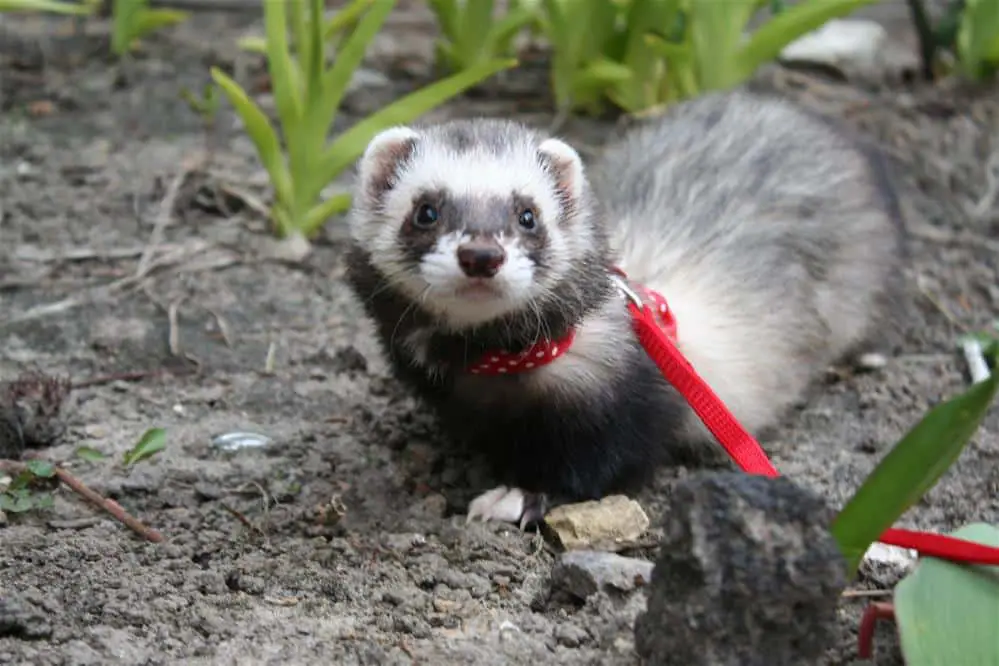
Are ferrets social or solitary?
Domestic ferrets are sociable and typically enjoy living in groups. Ferrets like sleeping – a healthy ferret may sleep between 18 and 20 hours a day. Ferrets communicate with each other using scent. Ferrets use smell to hunt.
Ferrets are members of the Mustelidae family, which includes species like weasels, minks, and otters. This family exhibits a wide range of social behaviors, from highly solitary to intensely social. Ferrets, in particular, are somewhere in between on this spectrum.
In the wild, ferrets often form social groups, typically consisting of closely related individuals. They share dens, hunt cooperatively, and engage in mutual grooming. This social structure serves to provide protection, share resources, and increase their chances of survival. In this context, it’s clear that ferrets have evolved with certain social tendencies.
When it comes to domesticated ferrets, they exhibit a strong capacity for forming bonds, not only with their own kind but also with humans. Many ferret owners can attest to the affection and attachment their pets develop towards them. Ferrets often seek out human interaction, play enthusiastically with their owners, and display signs of distress when left alone for extended periods. These behaviors suggest that domestic ferrets are, indeed, highly social animals that thrive on companionship.
Just like with humans, there is a range of personality types among ferrets. While some individuals may be extroverted and crave constant interaction, others may be more introverted and require occasional solitude. This variation can be influenced by genetics, early experiences, and socialization.
Do ferrets need a friend?
Ferrets don’t cope well living alone and should be kept in pairs or groups. You’ll often find them having an impromptu play, charging around their enclosure and springing at each other. One thing’s for certain, they always choose to snuggle together in a big pile when they sleep.
In the wild, ferrets are social animals that often live in groups. These groups, known as “businesses,” consist of closely related individuals who cooperate in various activities, including hunting, grooming, and maintaining a communal den. This natural inclination towards social living is deeply ingrained in their behavior.
Ferrets thrive on social interaction. When ferrets have a friend or cage mate, they engage in play, chase, wrestle, and groom each other. This play is not only enjoyable but also serves as a form of exercise and mental stimulation. Having a friend provides them with constant entertainment and reduces boredom.
Ferrets form strong emotional bonds with their cage mates. These bonds offer emotional support and security, reducing stress and anxiety. A companion can help comfort a ferret in unfamiliar or stressful situations, such as veterinary visits or new environments.
Loneliness can be detrimental to ferrets’ mental and physical health. Ferrets left alone for extended periods may become depressed, lethargic, or even develop behavioral issues. Having a companion can alleviate this loneliness and provide them with a sense of belonging.
Are ferrets OK alone?
Ferrets are highly sociable creatures. They can be kept on their own, as long as they receive plenty of attention and play time from humans. If this is not possible, it might be best to keep more than one ferret. Ideally, ferrets should be kept either in a pair or a small group.
Ferrets, with their lively and sociable personalities, are known for their strong preference for companionship. While they are not strictly solitary animals, some ferrets can tolerate being alone for periods, but there are important considerations to keep in mind if you’re thinking about keeping a ferret as a solo pet.
Ferrets are inherently social animals. In the wild, they form close-knit groups, known as “businesses,” where they engage in activities like hunting, grooming, and play. This social structure is deeply ingrained in their biology.
Ferrets left alone for extended periods can experience loneliness and stress. Signs of loneliness in ferrets may include lethargy, depression, excessive sleeping, or behavioral problems like biting and scratching. Stress can lead to health issues, such as ulcers or gastrointestinal problems.
While ferrets can form strong bonds with their human caregivers and seek human interaction, it’s challenging for humans to provide the level of social engagement that another ferret can. Ferrets typically benefit from having a fellow ferret to play and socialize with when their human companions are not available.
Do ferrets need social interaction?
Ferrets not only need supervision, they also need interaction. “Ferrets evolved as solitary animals but it appears that in the process of domestication, they’ve been made more social,” says Tynes. Although there are individual differences, it’s generally recommended to have at least two.
In the wild, ferrets live in groups known as “businesses.” These groups consist of closely related individuals that work together for mutual survival. This natural inclination towards social living is a testament to the importance of social interaction in their lives.
Ferrets form strong bonds with their fellow ferrets. They engage in playful activities, including wrestling, chasing, and grooming each other. These interactions are not only entertaining but also serve as a form of exercise and mental stimulation. Ferrets genuinely enjoy the company of their own kind.
Ferrets are highly social with their human caregivers as well. They often seek out human interaction, enjoying cuddling, playtime, and exploration together. Their curious and affectionate nature makes them delightful companions for those who appreciate their sociable disposition.
Social interaction plays a significant role in a ferret’s emotional well-being. When ferrets receive attention, affection, and companionship, they are less likely to experience stress, anxiety, or boredom. Conversely, isolation and lack of social interaction can lead to behavioral issues and a decreased quality of life.
Can ferrets love humans?
Ferrets may be tiny, but they pack big personalities into small packages. These guys can be extremely loving and cuddly with their humans. Of course, it takes time to form that special friendship.
Cuddling: Ferrets often enjoy snuggling and cuddling with their owners. They may curl up next to you or rest on your lap, seeking warmth and comfort in your presence. This physical closeness is a clear sign of their attachment.
Playfulness: Ferrets love to play, and they often initiate playtime with their human companions. They may bounce around, chase toys, or engage in interactive games, demonstrating their desire for shared activities and fun.
Following You Around: Ferrets are curious creatures and tend to follow their owners as they move around the house. This behavior is not only a sign of their curiosity but also an indication of their desire to be near you.
Excitement Upon Your Return: When you come home after being away, your ferret may show signs of excitement, such as wagging its tail, dancing around, or making joyful noises. This demonstrates that they missed your company and are happy to see you.
What is a ferret kiss?
Kissing. Just as in humans, your ferret kissing you on the lips can be a sign of affection. It can also mean that your ferret likes the flavor of your lip balm or of the turkey sandwich that you had for lunch.
A ferret kiss typically involves nibbling or gently biting a person’s face, fingers, or hands. This behavior may seem like nipping or biting, but it is done with very little pressure, often not even enough to cause discomfort or break the skin.
Ferrets have very sensitive mouths, and when they engage in this behavior, it’s usually quite gentle. They use their lips and teeth to explore and interact with the person, much like how they might groom or interact with other ferrets.
During a ferret kiss, the ferret may make purring or clucking sounds, which are signs of contentment and affection. These vocalizations are often accompanied by a relaxed body posture, indicating that the ferret is enjoying the interaction.
A playful and curious nature, and their “kissing” behavior is part of their natural inclination to interact and bond with their human caregivers. While it may resemble gentle biting, it’s usually not aggressive or intended to harm. Instead, it’s a form of tactile exploration and affection.
Do ferrets bite hard?
Nibbles and nips are often playful or accidental and usually do not leave a mark on the skin. The deliberate, hard bite, which typically results in a puncture wound, is a much more serious situation. A ferret might bite for many reasons, but most biting behavior falls under one of these two general headings.
Ferrets often engage in playful nipping, especially when they are young. This behavior is typically not intended to cause harm but is part of their natural curiosity and playfulness. They use their mouths to explore their environment, including people, and may gently nibble fingers, hands, or toes.
Ferrets may also resort to biting as a form of communication or to establish boundaries. These warning bites are often relatively gentle and serve as a way for the ferret to convey discomfort or displeasure. They are usually not intended to inflict harm but rather to signal that they want a certain behavior to stop.
Young ferrets, like puppies and kittens, go through a teething phase. During this time, they may chew on objects, including human hands, to alleviate discomfort as their new teeth come in. These bites can be somewhat firmer than playful nips.
Proper socialization and training are essential to teach ferrets appropriate behavior. With time and consistent training, ferrets can learn to control the force of their bites and understand what is acceptable behavior.
Can ferrets get jealous?
Ferrets do not usually demonstrate the jealousy that a cat or dog can when a new pet or a new child enters the home, but they will certainly know if they are suddenly getting a lot less attention from their owner, for whatever reason.
Ferrets are known for their playful and curious nature, and they can sometimes be possessive of their favorite toys, hiding spots, or even their human caregivers. When another ferret or pet approaches something a ferret considers their own, they may exhibit behaviors that appear as jealousy. This can include hissing, growling, or trying to chase away the perceived intruder.
Ferrets enjoy social interaction and can become accustomed to receiving attention from their human caregivers. If they perceive that another pet or person is getting more attention than they are, they may try to vie for your focus. They may become more active, playful, or vocal in an attempt to regain your attention.
Ferrets can form strong bonds with their human caregivers, and they may show signs of attachment, such as following you around or wanting to be close to you. If they see you interacting closely with another person or pet, they may display behaviors that suggest they want to be part of that interaction, which can sometimes be mistaken for jealousy.
In multi-ferret households, competition for resources like food, toys, and affection can arise. Ferrets might exhibit behaviors that seem competitive, but this is generally a result of their natural instincts rather than jealousy as humans experience it. Ferrets may exhibit behaviors that resemble jealousy, their motivations are more likely driven by a desire for attention, social interaction, or the defense of their perceived territory rather than complex human emotions like envy or resentment.
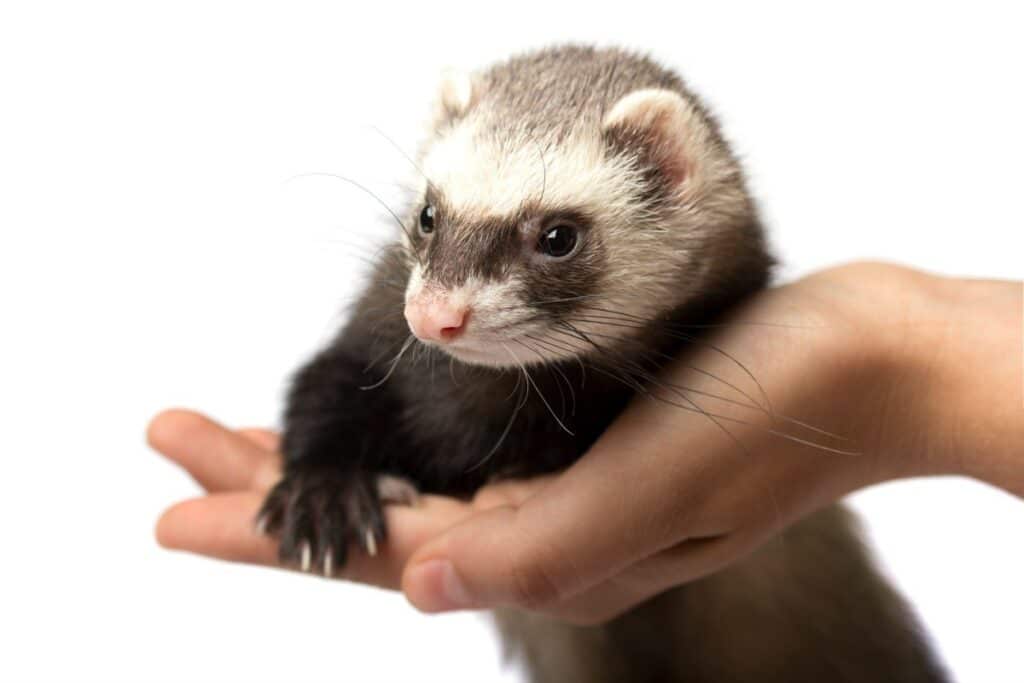
Conclusion
Ferrets, by nature, exhibit a captivating blend of social tendencies and independent characteristics. Their evolutionary history as members of the Mustelidae family provides a foundation for their social instincts, often forming groups in the wild to foster cooperation and protection. In domestic settings, ferrets display a remarkable capacity for forming strong bonds with their human caregivers, relying on them for companionship and affection. Their playful interactions, complex communication methods, and their sensitivity to isolation underscore their social nature. For those who share their lives with ferrets, it becomes evident that these animals thrive in an environment that nurtures their social needs.
Variations in their social behavior, influenced by genetics, early experiences, and socialization. Some may be more extroverted and ferret care seek constant interaction, while others might be more reserved. Ultimately, the answer to whether ferrets are social animals lies in acknowledging their unique and dynamic social dynamics. They form bonds with both their own kind and their human companions, making them truly captivating and endearing creatures. Understanding and catering to their social needs is essential for providing them with a fulfilling and enriching life in our homes.
A deeper connection with these delightful mustelids and appreciate the special role they play in our lives as both pets and companions. The question of whether ferrets are social animals extends beyond mere categorization; it touches on our fundamental understanding of these creatures as sentient beings. We’ve come to recognize that ferrets possess a rich social tapestry, a complex web of interactions, and a deep capacity for forming bonds. The duality of their nature, balancing social inclinations with moments of solitude, mirrors the spectrum of human social behavior. It reminds us that even within the animal kingdom, there are nuanced expressions of sociability.

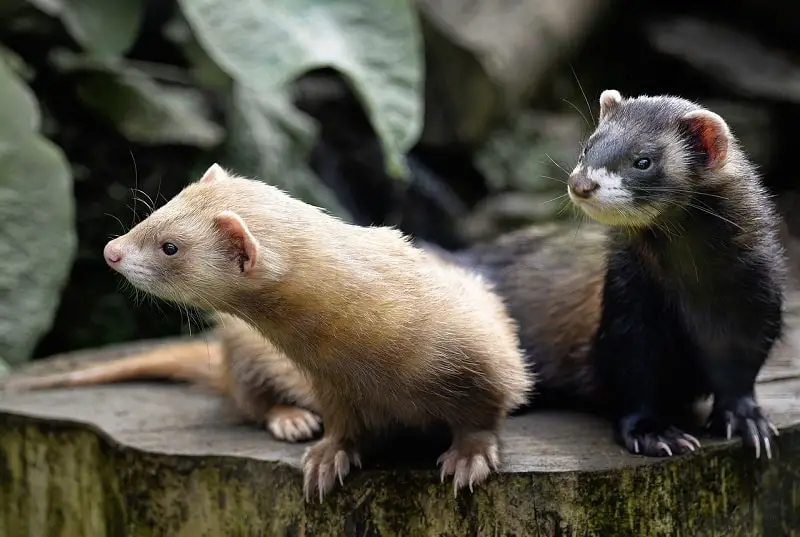
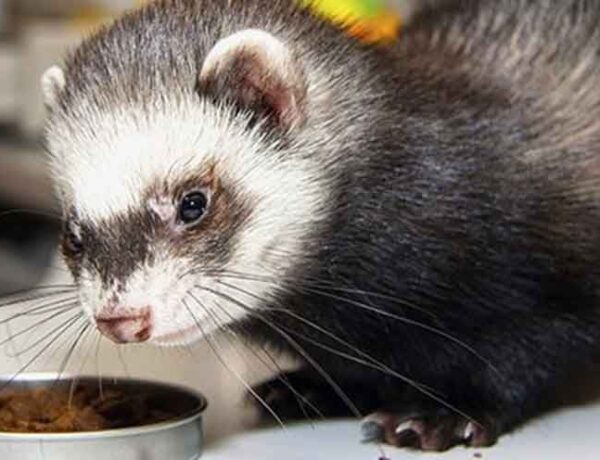
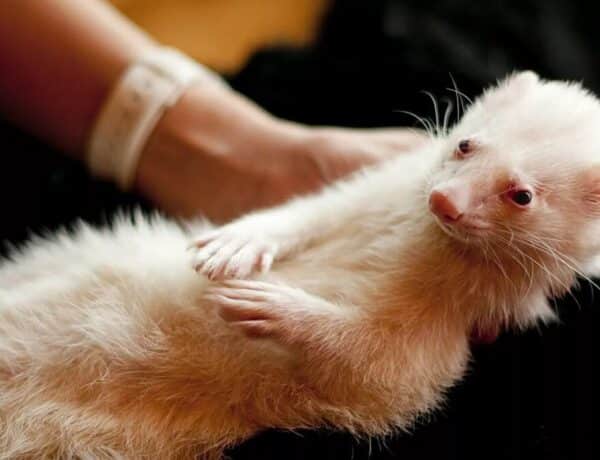
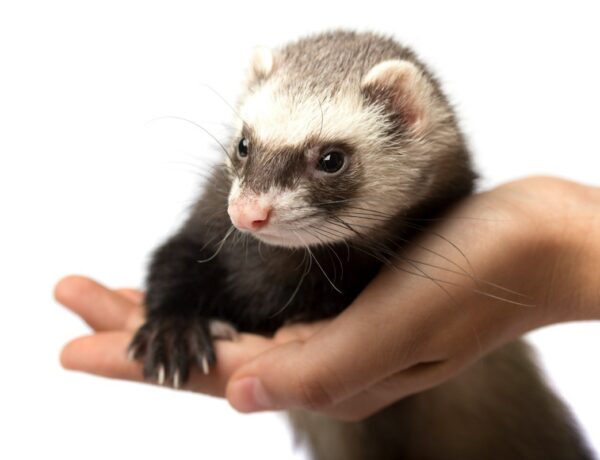
No Comments